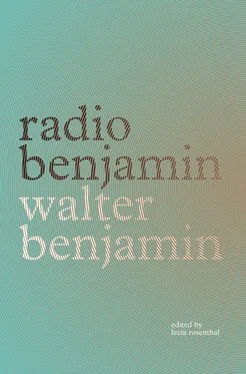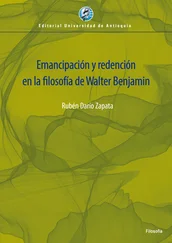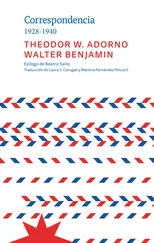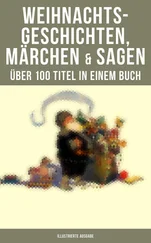THIRD CITIZEN: It’s said that he was a believer in the transmigration of souls.
SECOND CITIZEN: If his soul is transmigrating, then he could land on the Moon. He always loved long journeys.
FIRST CITIZEN: I can hardly credit that he was a professor of physics. “What is matter?” he’s supposed to have said. “Perhaps there’s nothing of the kind in nature. One kills matter and later pronounces it dead.” 27
THIRD CITIZEN: You shouldn’t believe everything they say about him; he hadn’t gone out in public for a long time. — There’s movement over there. They’ve lowered the coffin into the depths.
FIRST CITIZEN: It is an outrage that the professors didn’t even find it worth their while to cancel their seminars today.
SECOND CITIZEN: It really is quite a beautiful funeral cortege. If you remember Bürger’s funeral, where—
DIFFERENT VOICES: Shh! Shh! Shh! What insolent behavior. Disrespectful bunch.
THE PASTOR: Highly esteemed mourners, most particularly the honorable representatives of the university and the esteemed citizens of the town!
LABU: I open the last meeting of the Moon Committee for Earth Research. By a lamentable turn of events, the subject of our observations, the University of Göttingen Professor Lichtenberg, died before we could conclude our work. However, if I have switched off the funeral service, whose initial sounds you just heard, it is by rights, as our Committee has every reason to hold a separate funeral ceremony for Herr Lichtenberg. For what would our scientific honor be worth, gentlemen, if we did not concede that we had amends to make to the deceased?
Murmuring is heard from the Committee members.
Admittedly, gentlemen, it has been confirmed that humans are not happy. But we have too hastily drawn conclusions from that. We concluded that they can therefore amount to nothing. Now, it might seem that Professor Lichtenberg confirms that; you will all have inspected the extensive catalog of works the deceased wanted to write but never wrote. “The Island of Cebu” and “Kunkel” and “The Parakletor” and “The Double Prince” and whatever else they are called. But, gentlemen, perhaps he didn’t write books simply because he knew what their fate would be. As he said, for every one book that is read thoroughly, thousands are merely leafed through. Thousands more lie quietly around, others are wedged on top of mouse holes, or thrown at rats. And on top of others, so he says, people stand, sit down, drum, bake gingerbread. Others are used to light pipes, or to stand beneath windows. 28Caring little for books, Lichtenburg cared all the more for thought. Thanks to our methods of photography we possess today the entries he wrote in his diaries, which will likely one day gain a reputation for themselves on Earth. As I’m sure you will have ascertained for yourselves, gentlemen, these diaries are full of curious, deep, and wise insights, at which he might perhaps never have arrived had he possessed the untroubled cheerfulness that is ours on the Moon. I therefore venture, most esteemed gentlemen, to call into question the basis of our research, that is, that humans can never amount to anything because they are never happy. Perhaps it is their unhappiness that allows them to advance, some of them as far as Professor Lichtenberg, who is worthy — and not merely because of his Moon map — of all the honor we can bestow. I therefore propose that we elevate Crater No. C.Y. 2802, in which we hold our meetings, into the company of those craters here on the Moon that we have dedicated to the minds on Earth we deem worthy. The craters — those at the edge of the cloud sea, those on the heights of the lunar mountains — that bear the exalted names of Thales, of Helvetius, of Humboldt, of Condorcet, of Fourier should accept into their ranks the Lichtenberg Crater, which lies clearly, purely, and peacefully in that magical light that illumines the millennium and is comparable to the light that begins to shine from the writings of this earthly Lichtenberg. We conclude the research of our Committee and switch on the music of the spheres.
Music.
“Lichtenberg, Ein Querschnitt,” GS, 4.2, 696–720. Translated by Lisa Harries Schumann.
Radio play commissioned by Radio Berlin. In April 1932, Benjamin noted in a letter to Scholem that, after the “great success” of both What the Germans Were Reading While Their Classical Authors Were Writing and Much Ado About Kasper, he had been commissioned by Radio Berlin to write Lichtenberg (The Correspondence of Walter Benjamin, 391 ) . By February 1933, Benjamin’s opportunities for employment on the radio had ceased. On February 28, 1933, he wrote to Scholem that he had spent the day on “the dictation of a radio play, ‘Lichtenberg,’ which I must now send in, in accordance with a contract, the better part of which has long been fulfilled… ‘Lichtenberg,’ though commissioned, is not sure to be produced” (Ibid., 402). The radio play was never broadcast.
1Benjamin borrows the names of the Moon Beings Labu, Sofanti, and Peka from Paul Scheerbart’s novel Lesabéndio: Ein Asteroiden-Roman (1913) [Lesabéndio: An Asteroid-Novel]. For Benjamin on Scheerbart, see Benjamin, “On Scheerbart,” in SW, 4, 386 (“Sur Scheerbart,” GS, 2.2, 631), and “Paul Scheerbart: Lesabéndio” (GS, 2.2, 618–20).
2Tobias Mayer (1723–1762), German astronomer known for his studies of the moon, and Georg Christoph Lichtenberg (1742–1799), German writer, satirist, aphorist, and scientist. During the years 1931–1932, Benjamin had “prepared, for a commission, a complete bibliography of the writings of and about G. C. Lichtenberg” (Benjamin, “Curriculum Vitae [VI],” SW, 4, 382). The bibliography, commissioned by the Berlin lawyer and Lichtenberg collector Martin Domke, was never published and, apparently, does not survive. A card index for the bibliography is, however, extant (GS, 7.2, 837).
3Lichtenberg met David Garrick (1717–1779), the influential English actor, playwright, and theater manager, in London in 1775. Lichtenberg wrote about the encounter in his “Letters from England,” on which Benjamin loosely bases the scene that follows. See Lichtenberg, Briefe, eds. Albert Leitzmann and Carl Schüddekopf, 3 vols. (Leipzig: Dieterich, 1901–1904), vol. 1, 237. See also Lichtenberg, Vermischte Schriften, vol. 3 (Göttingen: Dieterich, 1844), 197ff.
4Shakespeare, Hamlet, Act I, Scene V.
5August Wilhelm Iffland (1759–1814) and Konrad Eckhof (1720–1778), renowned actors of the German stage.
6See Lichtenberg, Vermischte Schriffen (1844), vol. 6, 50–3.
7“Steht auf, ihr lieben Kinderlein!” a church song written by the Lutheran Erasmus Alberus in the mid-sixteenth century, was collected in a number of Lutheran hymnals as a “morning song.” Clemens von Brentano and his brother-in-law Ludwig Achim von Arnim included it as “Morgenlied” in their collection of romanticized folk poems and songs Des Knaben Wunderhorn (1805–1808). It was later set to music by Anton von Webern, Max Reger, and Armin Knab among others. [Trans.]
8Lichtenberg, Vermischte Schriften, ed. Ludwig Christian Lichtenberg and Friedrich Kries, vol. 1 (Göttingen: Dieterich, 1800), 40.
9James Cox (1723–1800) was a London jeweller, toy maker, goldsmith, clockmaker, and inventor whose firm produced elaborate automata and mechanical figures. He opened his museum in the 1770s.
10See Lichtenberg, Vermischte Schriften, eds. Lichtenberg and Kries, vol. 1, 26.
11See Lichtenberg, Aphorismen, ed. Leitzmann, 5 vols. (Berlin: B. Behr, 1902–1908), vol. 4, 47.
12The denial of a life insurance policy (“Sterbethaler Direktion”) is mentioned by Lichtenberg in a letter to Friedrich Heinrich Jacobi dated February 6, 1793 (see Lichtenberg, Briefe, vol. 3, 69). However, Benjamin probably invents the letter from the insurance company.
Читать дальше












